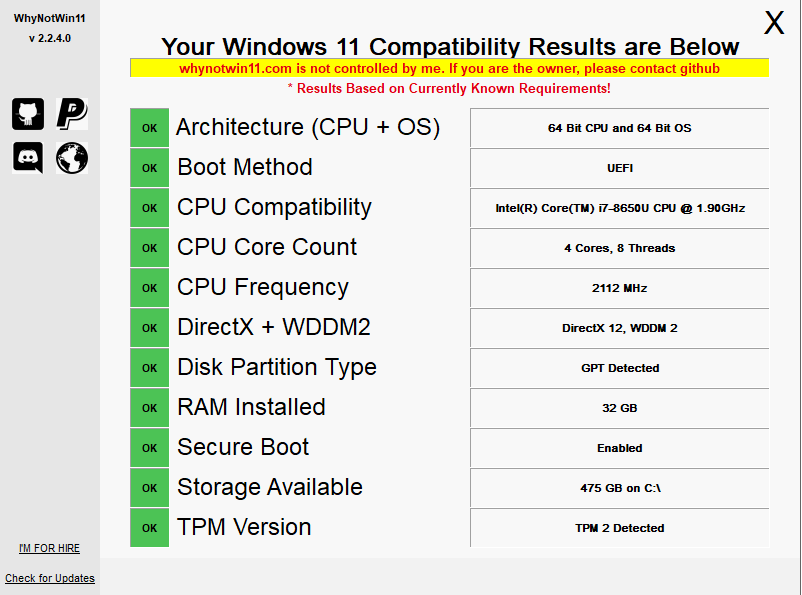Windows 11: Everything you need to know
After 6 years, Microsoft changed their mind and is finally releasing a brand new Operating System. Some may remember that when Windows 10 was released, it was announced that moving forward they would no longer release new versions of Windows, instead opting for semi-annual feature updates. Now it seems they have changed their mind and have announced Windows 11.
Top things to note:
This is a free update
There are some special requirements to run Windows 11
New start menu (don’t worry, this isn’t another windows 8 fiasco)
Native Android Apps
Free Update:
This we expected, but it is nice to see officially confirmed. The upgrade to 11 will be a free upgrade from Windows 10, so you don’t have to worry about purchasing a new license. Microsoft moved to this model when they introduced Windows 10, so it is nice to see they are continuing this model.
Special Requirements:
This is an area many people are discussing when it comes to the new version of Windows. There are more restrictive requirements for Windows 11 than there ever have been to prior versions of Windows. These are being introduced due to the enhanced security Windows 11 would like to bring. Microsoft has put together a free app to determine if you computer is Windows 11 ready, and there is also a really detailed reporting tool linked below that will check for all the requirements as well. Let’s go through these requirements, so you understand what you need to be Windows 11 ready.
Boot Type: Your boot type MUST be UEFI. UEFI is a secure boot option that was introduced a while ago, so if you computer is 5 or less years old you most likely are booting with UEFI.
64 bit CPU: 32 bit CPU’s are no longer supported. Most modern computers have been shipping with 64 bit for the past several years. If you have more than 4GB of RAM, your computer shipped with 64 bit, so this is not something to worry about.
CPU and RAM: Your CPU must be 1ghz or more, and RAM must be 4GB or more
Storage: 64GB or more of storage
Secure Boot Enabled: This is almost always enabled in UEFI booting, but this is a requirement
Disk Partition: Must be GPT, this is commonly found in new computers from the past few years. You can find this in your disk partition menu, but using the tool linked below will tell you faster.
Direct X 12 Support: This is a video driver requirement, again most modern devices will support Direct x 12.
TPM: This is one that has most people talking. TPM stands for Trusted Platform Module. Any pre-built device since 2016 should have a TPM 2.0 module in it. This is a hard requirement for Windows 11. This is a physical chip that needs to be in your computer. If you have a desktop, some manufacturers have add-on chips that can be purchased, however if that option is not available, you are out of luck without purchasing a new computer.
Click here to download the free tool “whynotwin11” to quickly and easily check all requirements. Run this on the computer you want to upgrade to Windows 11.
New Start Menu:
We have another new Start Menu! Don’t worry though, this time I think they did a really solid job designing this to be an improvement, rather than change for the sake of change. Now by default your menu and icons are centered on the taskbar (you can change this in settings to be set to the left like past versions). Clicking the start button brings up the menu shown above. You can pin apps that you use often here, and the bottom half shows suggested files or recent files that you may want to open. Underneath that is your profile, and the power options. I think the design is clean and easy to use. The live tiles are gone, and I think pretty much everyone will be happy to see that.
Native Android Apps:
With Windows 11, you will now be able to run most android apps natively. This is actually a partnership with Microsoft and Amazon. Once you open the Windows Store, you’ll be able to search for Windows and Android apps. If an android app is available, you’ll be able to download it and run it just as if you are on android. We will have to see how well this works, but it is a welcome addition as the Windows apps have never really taken off well with developers, so this will immediately expand available apps, and developers can just work on a single app rather than multiple, so we all get a better experience.
These are the highlights and important things to know about Windows 11. The beta is starting tomorrow, 6/28/21, and the full release is due around the holidays, but no strict date has been announced. If you have any more questions please feel free to reach out to us. In the coming months, if we manage your IT for your business, we will be checking to see if you are Windows 11 ready and let you know what you need to do if you are not.



